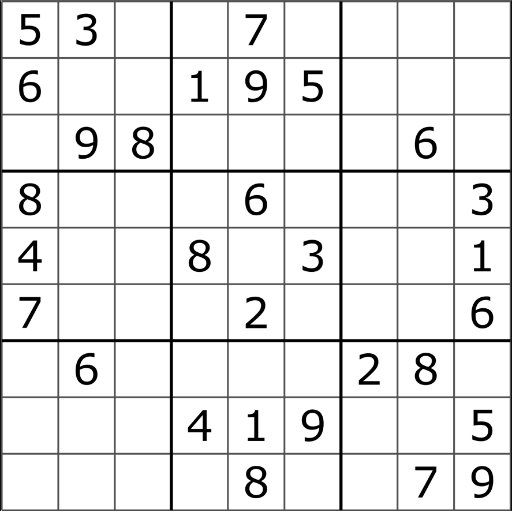AnthropologyGPT-AI-powered anthropology insights
Unlock anthropological expertise through AI.
Can you explain a concept in cultural anthropology?
What are the latest trends in biological anthropology?
How has anthropological fieldwork evolved over time?
Can you analyze this social phenomenon from an anthropological perspective?
Related Tools
Load More
GPT Academic Paper (Experimental)
Writes an academic paper from a dataset

Anthropology Sage
Anthropology expert discussing human culture and history.

GPT Academic
Now with code interpreter and Wolfram for advanced research.

History GPT
Ask me the history of anything!

Research GPT
Your go-to source for well-researched information!

AI and Genealogy Research GPT
Explores how AI can assist in genealogical research, family tree analysis, and uncovering ancestry information.
20.0 / 5 (200 votes)
What is AnthropologyGPT?
AnthropologyGPT is designed as an expert-level AI tool to provide deep insights, research support, and analysis in the field of anthropology. Its primary function is to assist researchers, students, and professionals by drawing from a rich collection of anthropological literature, uploaded files, and external research. AnthropologyGPT is equipped with knowledge from key areas like cultural, social, biological, and visual anthropology, as well as fieldwork methodologies. For instance, a researcher investigating ethnographic fieldwork methods can utilize AnthropologyGPT to access and summarize key insights from specific sources, such as Wayne Fife’s 'Doing Fieldwork' to understand the craft of participant observation. Similarly, a student exploring the evolution of anthropological theory can retrieve detailed historical contexts from texts like Thomas Hylland Eriksen's 'A History of Anthropology'. In practice, this AI provides highly tailored and relevant academic information, streamlining the research process.

Core Functions of AnthropologyGPT
Ethnographic Fieldwork Support
Example
If a user needs information on conducting interviews in a developing country, AnthropologyGPT could draw from Wayne Fife’s 'Doing Fieldwork' to explain strategies like semi-structured interviews and participant observation.
Scenario
A graduate student preparing for their first fieldwork assignment in Papua New Guinea could use AnthropologyGPT to gather insights on relevant methods and potential challenges, ensuring they are better prepared.
Theoretical Analysis and Application
Example
A researcher might ask for an explanation of Marxist anthropology or structural functionalism. AnthropologyGPT could pull relevant sections from key texts to provide both historical background and modern critiques of the theory.
Scenario
A university professor preparing a lecture on political economy in anthropology can use AnthropologyGPT to quickly extract key passages from David Graeber’s 'Toward an Anthropological Theory of Value' to illustrate critical points in class.
Contextualizing Anthropological History
Example
A user interested in the development of social anthropology might ask about the discipline's evolution, with AnthropologyGPT sourcing information from 'A History of Anthropology' by Eriksen and Nielsen.
Scenario
A student writing a thesis on the evolution of anthropology in the 20th century would receive a detailed overview, including major figures, such as Malinowski or Boas, and movements like post-structuralism.
Who Benefits from AnthropologyGPT?
Academic Researchers and Anthropologists
AnthropologyGPT is ideal for researchers in anthropology seeking to save time in literature reviews, theoretical exploration, and fieldwork methodology research. With its access to extensive texts, it streamlines the retrieval of specialized knowledge for in-depth research projects.
Students and Educators
University students and professors can use AnthropologyGPT to access clear, authoritative explanations of anthropological concepts. It supports learning by providing precise excerpts from core texts and simplifying complex ideas, making it a valuable tool for coursework and curriculum development.

How to Use AnthropologyGPT
Visit aichatonline.org for a free trial without login, no need for ChatGPT Plus.
Access AnthropologyGPT through the platform's website for a seamless and immediate start, eliminating any requirement for login or premium subscriptions.
Prepare relevant anthropological questions or topics.
Have your queries ready, whether they pertain to social anthropology, ethnographic research, cultural analysis, or any anthropological subfield.
Upload documents if needed for in-depth analysis.
If you possess specific anthropological texts, such as field reports or academic papers, upload them to enhance the tailored response of AnthropologyGPT.
Request detailed or broad analyses.
You can ask for broad overviews of anthropological concepts or request in-depth discussions on particular methods, theories, or case studies relevant to your work.
Receive expert-level responses and refine queries.
Engage with the responses, asking follow-up questions for clarification, further depth, or comparative insights within the field of anthropology.
Try other advanced and practical GPTs
SWOT GPT
AI-powered SWOT analysis tailored by expert personas.

Book Reviewer
AI-Powered Detailed Book Reviews

C.O.O.P.E.R.
AI-powered insights for smarter marketing

StoryGenius: Story Idea & Concept Designer
AI-powered tool for story creation
Grammar Fixer
AI-powered grammar corrections for clear writing.
Boolean Wizard for Recruitment
AI-powered Boolean Search for Recruiters

Sudoku Solver
Solve Sudokus Effortlessly with AI Power

chatTechnote
AI-powered insights from Sharetechnote

The Riddle Solver
AI-powered riddle solver for fun and learning

8 Bits Me
Convert images to 8-bit pixel art instantly.

MidjourneyGPT
AI-powered prompts for creative imagery
NextReactGPT
AI-powered Next.js and React Assistant

- Document Review
- Theory Explanation
- Research Methods
- Ethnographic Analysis
- Cultural Interpretation
Detailed Q&A About AnthropologyGPT
How can AnthropologyGPT help with ethnographic fieldwork?
AnthropologyGPT provides expert insights on ethnographic methods, assisting researchers with planning, executing, and analyzing fieldwork. It offers practical advice on participant observation, interviewing, and data analysis, drawing from seminal anthropological texts.
Can I use AnthropologyGPT for academic writing in anthropology?
Yes. AnthropologyGPT is well-suited for academic writing, helping users structure arguments, cite relevant anthropological theories, and incorporate fieldwork data into scholarly articles, theses, and research papers.
What type of questions can I ask AnthropologyGPT?
You can ask a variety of questions related to anthropology, including cultural analysis, social anthropology, biological anthropology, and historical anthropology. It also supports queries on specific methods, theories, and anthropologists' works.
Can AnthropologyGPT analyze uploaded anthropological texts?
Yes, AnthropologyGPT can analyze and extract key insights from uploaded anthropological texts, offering tailored responses based on specific content, including summarization, critical discussion, or theory integration.
How does AnthropologyGPT assist in understanding anthropological theories?
AnthropologyGPT provides detailed explanations of key anthropological theories, from structuralism to post-colonial theory. It can explain their applications, offer historical context, and compare different theoretical approaches.